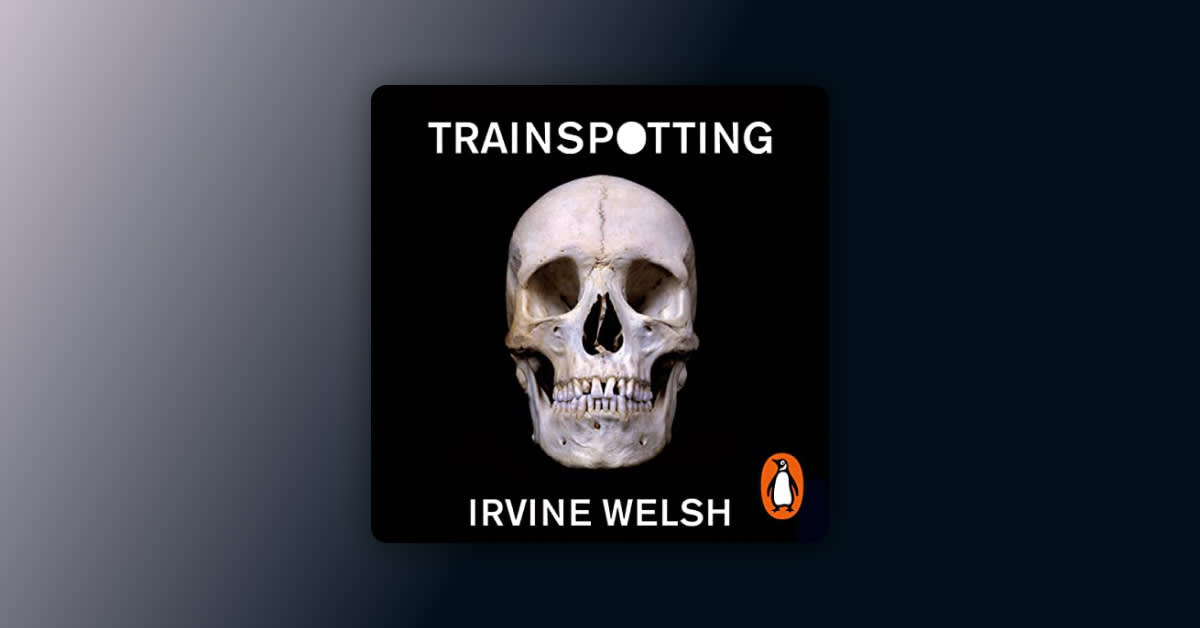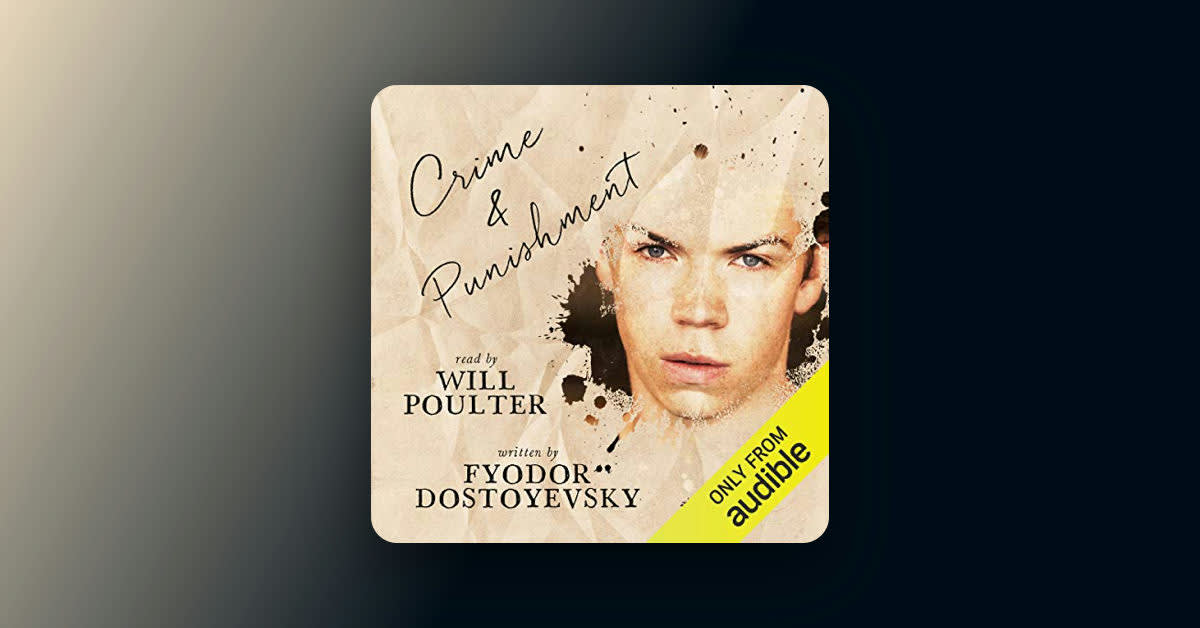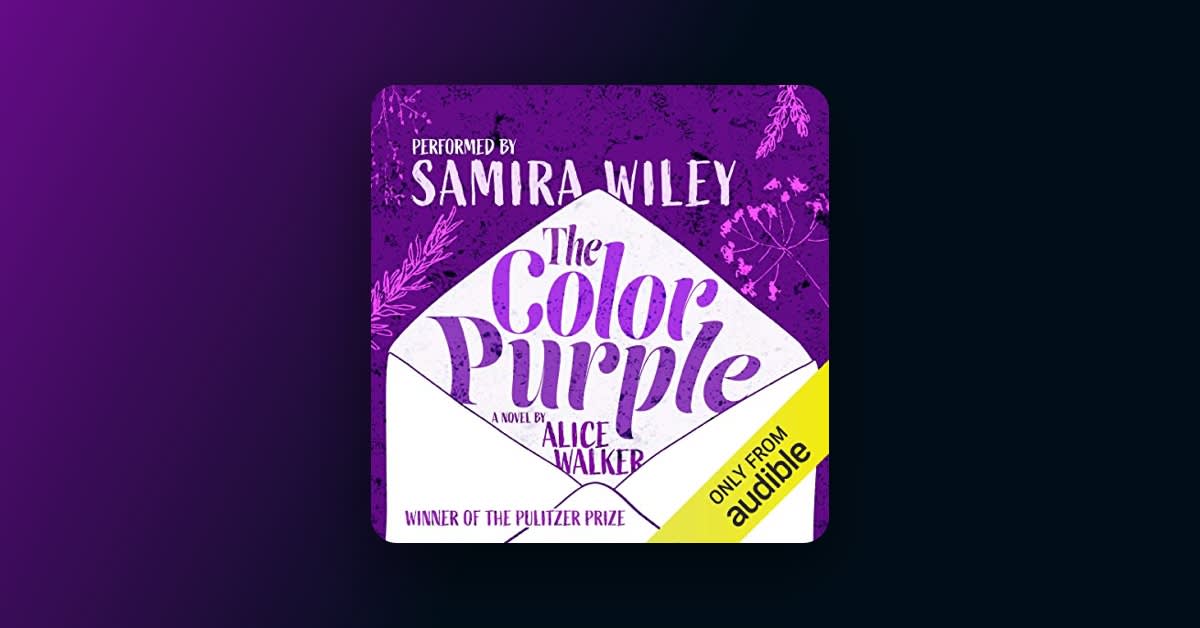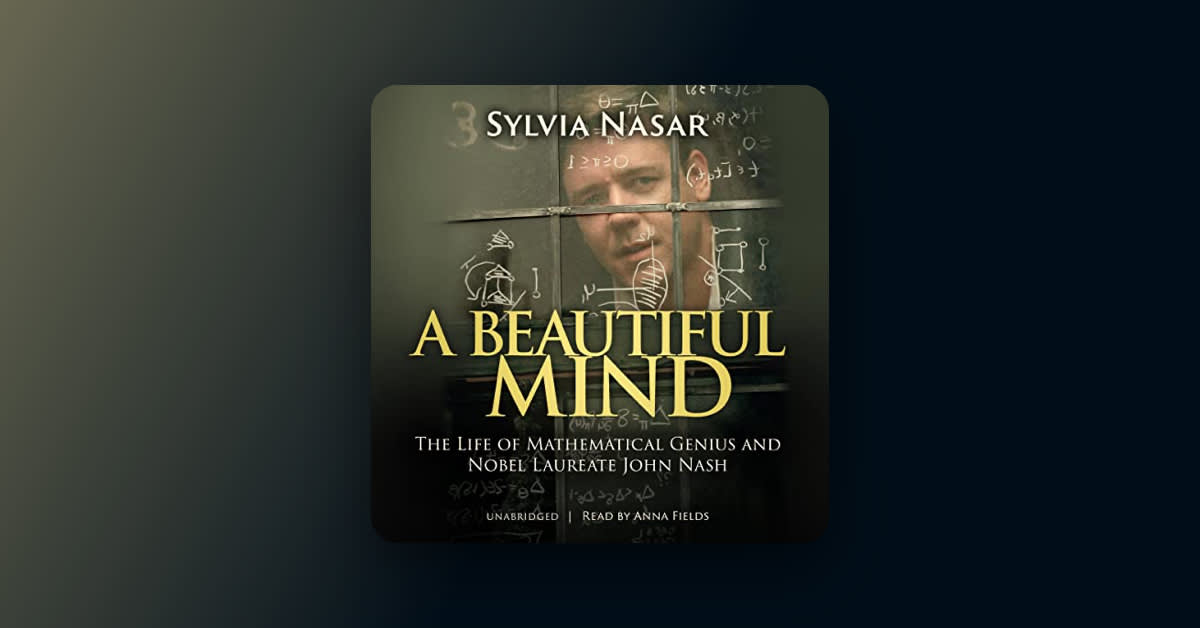Why it's essential
Irvine Welsh’s Trainspotting is a singular piece of Scottish fiction. This novel not only gained immense popularity worldwide but also added to the ongoing conversation about addiction and social support programs.
What is Trainspotting about?
Trainspotting tells the story of Mark Renton, a heroin addict who lives in an unstable home in Edinburgh, Scotland. Over the course of the story, Renton and his friends do everything they can to get by, becoming increasingly desperate as they face the ugly truths of drug addiction.
Editor's review
Seth Hartman is an Audible editor and a certified podcasting fanatic. He lives for historical fiction, music and film analysis podcasts, and well-placed Oxford commas.
Like many of my favorite books, Trainspotting was introduced to me by my father. I can still remember him enthusiastically handing me his old copy, basically chomping at the bit for me to give it a try. My dad had never steered me wrong before, so it didn’t take much time at all for me to dive in.
My first impression of this book was that it was very difficult to understand. Famously, Trainspotting is written almost entirely in Edinburgh slang. This uncompromising decision by author Irvine Welsh forces the reader to play by his rules. Despite the somewhat difficult learning curve, this choice eventually pays off in dividends. By the midpoint of the story, protagonist Mark Renton’s idiosyncratic voice makes sense to the reader in a very visceral and intimate way, to the point where you almost feel like a part of his degenerate friend group. Who would have thought words like "dosh," "skag," and "eywis" could mean so much?
Speaking of uncompromising, the world Welsh drops the reader into is equally brutal. The narrative of Trainspotting sees Renton and his friends Sick Boy, Begbie, Spud, and Tommy trying to get by in the big city while managing their addictions. The Edinburgh experienced by Mark Renton showcases an underserved community crawling with violent criminals and anguished street urchins. Welsh takes great care to highlight the cultural context of this gritty cesspool, displaying his characters as products of their environment. Their lack of education and the normalization of their behavior is front and center in the narrative, occasionally used to comedic ends. These aren’t evil people (except for maybe Begbie), but they are nonetheless drawn to a life of crime in order to get by.
Most people know Trainspotting from the 1996 film adaptation starring Ewan McGregor. But I personally think the book is the true way to experience this story. Despite its heavy subject matter and bleak outlook, Trainspotting actually has a hopeful message attached to it. Through the narrative, Renton seems to want out of his circumstances. Despite having several backslides and committing one or two felonies, he is looking for a way to better himself. As he puts it in one iconic speech, "Choose life."
Did you know?
The title Trainspotting refers to the idle action of observing trains going by, speaking to the existential themes of the book.
Welsh first wrote Trainspotting as a number of loosely interconnected short stories, which he later adapted into a full novel.
Trainspotting has been the center of many cultural debates, and is often cited as a work that highlights many quintessential issues that Generation X faced.
What listeners said
"It's just as good as I thought, if not better. Irvine is a genius. I don't really know what else to say. I'm kind of at a loss for words." - Audible Listener
"Ever since the movie came out, I've tried off and on to read Trainspotting and have never had any success. THIS is the way to experience it. Narrator Tam Dean Burn is extremely talented. Probably of equal importance, he grew up in the same area that author Irvine Welsh did so the thick dialect is pitch perfect and is exactly as intended by the author. I could finally understand the book for the first time and I love it." - Audible Listener
"I read this 10yrs ago with some difficulty, however hearing it seemed to go easier, especially when you hear the words in context, ye kin? The narrator is excellent and does a masterful job." - Audible Listener
Listen if you loved
Quotes from Trainspotting
"Sometimes ah think that people become junkies just because they subconsciously crave a wee bit ay silence."
"Iggy Pop looks right at me as he sings the line: 'America takes drugs in psychic defence'; only he changes 'America' to 'Scatlin', and defines us mair accurately in a single sentence than all the others have ever done."
"They mean well, and they mean well tae me, but there's nae way under the sun that they can appreciate what ah feel, what ah need. Protect me from those who wish tae help us."
Adaptations
Trainspotting was adapted into a film by Danny Boyle in 1996, enjoying both critical and commercial success. Ewan McGregor's depiction of the hardened-yet-sensitive Mark Renton was lauded, although the film was snubbed at the Academy Awards. In 2004, Trainspotting was voted the best Scottish film of all time. Its sequel, T2 Trainspotting, was released in 2017.
About the author
Irvine Welsh is the author of Trainspotting, Glue, Porno, The Sex Lives of Siamese Twins, A Decent Ride, Skagboys, The Long Knives, and many others. He divides his time between Florida, Ireland, and Scotland.
About the performer
Tam Dean Burn (born 1958 in Leith, Scotland) is a Scottish actor who has played a wide range of roles on stage and screen. On television this includes multiple roles on long-running detective series Taggart, youth sci-fi thriller Life Force, and on BBC Scotland's soap opera River City, where he played gangster Thomas McCabe. Burn currently performs as a featured lead singer alongside Scars (band).







